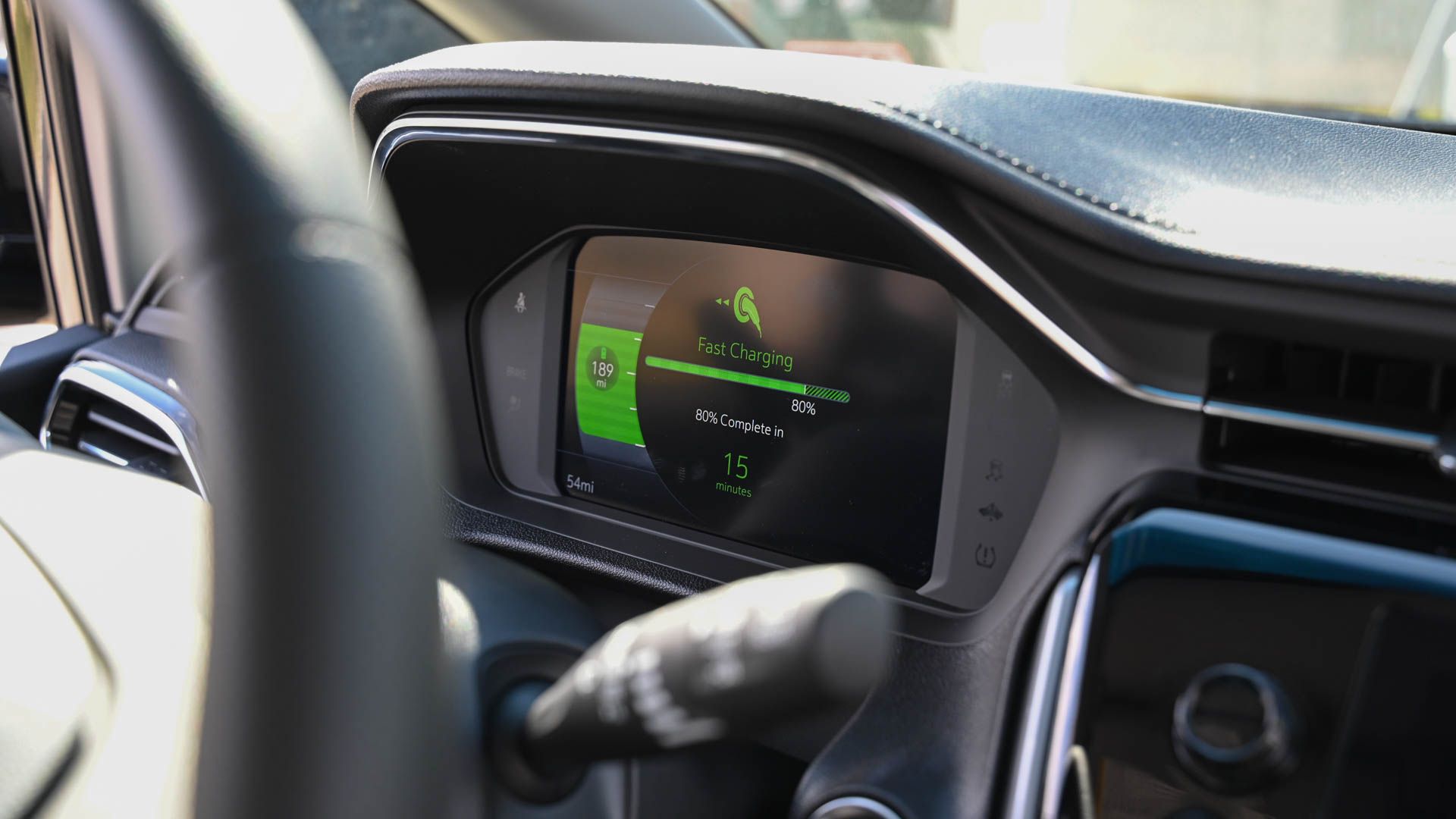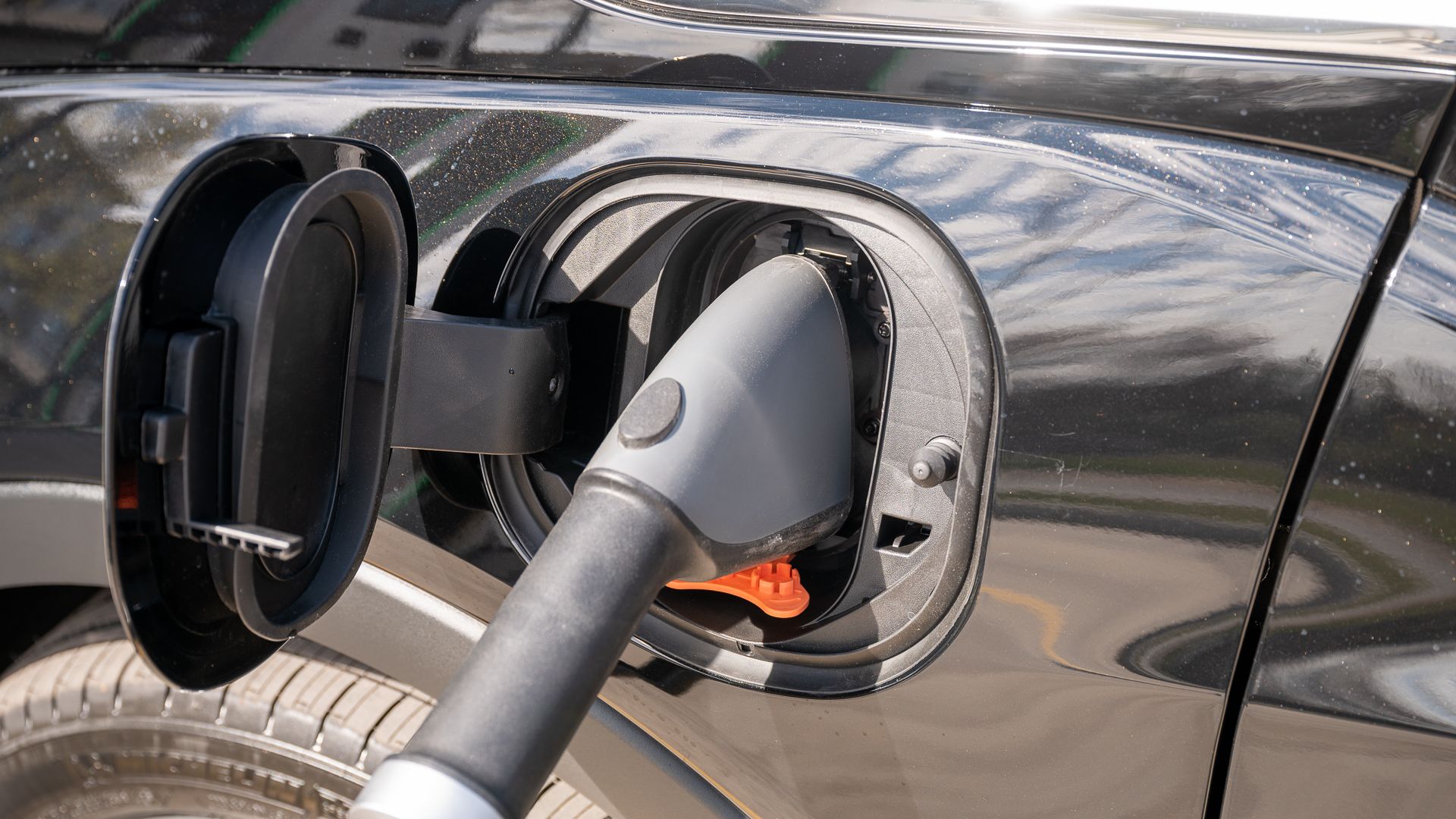
Understanding EV Range Concerns: Are We Really In Need to Worry?

Understanding EV Range Concerns: Are We Really In Need to Worry?
Are you considering an electric car for your next vehicle but are worried about so-called “range anxiety”? It’s a common saying we’ve all heard before, and no matter what new EV gets announced or released, the topic always finds a way to surface. So, what is range anxiety, and is the fear warranted? Here’s what you need to know.
What Is Range Anxiety?
Range anxiety is a common EV term thrown around as a general way to suggest that drivers worry about an electric vehicle not having enough battery life to reach their destination. People fear that an EV won’t have enough energy stored to make it to work, finish a road trip, or find a nearby charging station.
It’s not a new fear. Regular ICE (internal combustion engine) vehicles that run on gasoline have the same problem. Eventually, you’ll run out of fuel and must stop for gas. Or, pay attention to the gas gauge and stop for a fill-up when necessary. The same logic applies to electric vehicles, and for people who own an EV, it’s not nearly as big of a problem as some make it out to be.
Is Range Anxiety a Valid Concern?

Hannah Stryker / How-To Geek
If you’re the proud owner of a new electric car or looking to buy a lightly used EV , you’re probably wondering if the range is an actual concern. Unfortunately, that’s a tricky question to answer. Whether you’ll experience range anxiety depends on the model, battery capacity, driving style, and your daily commute.
There are plenty of new electric cars on the road today that barely get over 200 miles of range, like the Nissan Leaf. And while that’s not awful, most modern gas vehicles achieve better numbers. I can understand the hesitation about taking a long road trip with an EV that can barely exceed 200 miles. However, that type of range is not a concern for a daily driver around town. Using an EV that doesn’t have an excellent range to commute to work is fine, especially when you can easily charge it at home on the weekends.
So, while it’s valid to worry about range estimates and potentially choose a model or Tesla with the most range , it all depends on your individual wants and needs. Countless small cars, trucks, and SUVs in the United States get awful gas mileage, yet the discussion is about gas prices, not “MPG anxiety” for owners.
Don’t get me wrong, the fear of running out of battery is certainly real, especially for first-time EV buyers. It’s tough to get over mentally, at least at first. Thankfully, after you own the car for a while, you’ll quickly get into a charging routine. Once you do, that anxiety will disappear, and you won’t even think twice about it. I know several EV owners that only charge their vehicle once every 2–3 weeks without worry.
Range Isn’t the Problem, Charging Is

Justin Duino / How-To Geek
While EV technology continues to advance, the range isn’t improving all that much , and that’s okay. The problem isn’t that your electric car can only go 270 miles on a charge, as gasoline vehicles have a similar situation. It’s the charging infrastructure itself. To be more specific, the bigger problem facing EV owners is charging network locations and reliability.
Finding a nearby charging station is a huge concern, not to mention stopping at one that’s fast enough or supports your vehicle. Then, when you do, you want to know that it’ll actually work. Talk to any EV owner, and they’ll mention driving to a specific charger location only to find them all in use, out of order, or other issues.
It’s frustrating, but that’s the current state of things. Thankfully, in the U.S., most manufacturers have adopted the NACS (North American Charging Standard) plug type, and new charging locations are appearing by the day. Tesla is a leader in this space, and its Supercharger network now has a Magic dock that works with non-Tesla EVs . Then, we continue to see rapid expansion of charging locations from major brands like Tesla, Rivian, ChargePoint, Electrify America, and others.
How Do You Deal With Anxiety About Range?
How far your electric car or truck can go on a single charge is worth taking into account, but it isn’t as important as finding a reliable and compatible charging station. Don’t let rumors and comments about range anxiety stop you from enjoying an exciting new vehicle with cutting-edge technology.
The easiest way to do that is to buy a capable new electric car, then download one of the many EV charging apps to find a nearby station or search for one inside Google Maps . Get to know your vehicle and its range, and how it fits into your driving habits, then enjoy all it has to offer.
Also read:
- [New] Building Your ASMR Empire Key Concepts and Best Practices for 2024
- [New] Dissecting YouTube Copyright Vs. Creative Commons Ethos for 2024
- [New] Excellent PC Screen Grabbers The Most Useful #1-#5
- [New] In 2024, The Escape Artist's Manual to Disguised YouTube Archives
- [New] Keywords that Captivate Enhancing Your Video Content
- [New] YouTube for Educators Maximizing Its Classroom Potential
- [Updated] 2024 Approved Boost Your Channel Game Essential Video Editing Advice
- [Updated] 2024 Approved Guide to Captivating GMeet Audiences with Flawless PPT Presentations
- [Updated] 2024 Approved How to Optimize Video Quality on YouTube with Size Settings
- [Updated] 2024 Approved Step Into Professional Photoshop Mastering LUTs in CS6/CC
- [Updated] Beam It Up! 15 Must-Haves for Your YouTube Live Stream for 2024
- [Updated] Expert Pick Mics for YouTube Entrepreneurs for 2024
- [Updated] Maximize Visibility with Well-Structured YT Summaries
- [Updated] Prime Platforms Elevating YouTube Success
- In 2024, How To Unlock a Honor Play 8T Easily?
- Mastering Android Device Manager The Ultimate Guide to Unlocking Your Realme Narzo 60x 5G Device
- Top WebM to MP3 Converters for Seamless Audio Conversion for 2024
- Tweeting & Blogging Videos Integration Guide for 2024
- Ultimate Guide: Activating Recovery Mode on Your iPad
- Title: Understanding EV Range Concerns: Are We Really In Need to Worry?
- Author: Jeffrey
- Created at : 2024-11-26 16:06:57
- Updated at : 2024-11-28 18:43:38
- Link: https://eaxpv-info.techidaily.com/understanding-ev-range-concerns-are-we-really-in-need-to-worry/
- License: This work is licensed under CC BY-NC-SA 4.0.